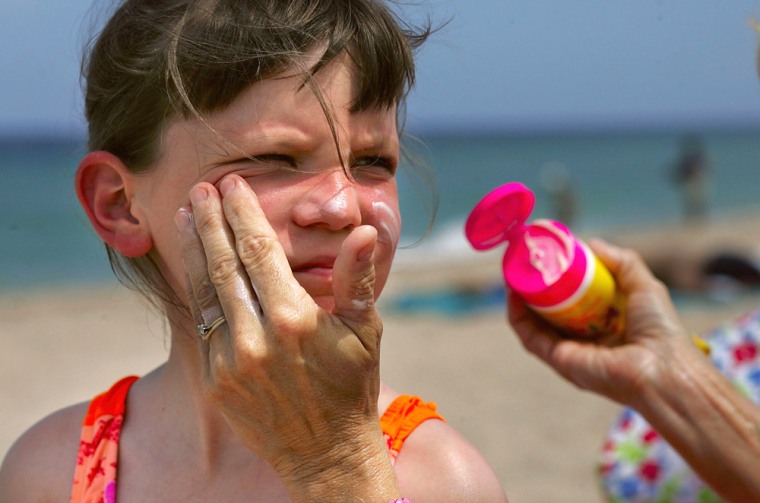If you think slathering yourself with sunscreen will keep you from getting skin cancer, think again.
No, the sun protection industry hasn't been waging a misinformation campaign. The fact is, "sunscreen" is not the same thing as "sunblock." And if you don't know the difference, you're not alone. It's one of the many misconceptions and unknowns surrounding sun protection — and unfortunately, ignorance in this area can cost you.
Most of us are guilty of some form of sun worship. When the weather is bright, we lounge at the beach, run out for a round of golf or putter in the garden. Such simple acts of leisure can lead to more serious consequences than sunburn. Daily exposure to ultraviolet rays can add up to premature aging, wrinkles and skin cancer.
According to the American Cancer Society, more than 1 million people in the U.S. are diagnosed with skin cancer each year. And the number is rising. Luckily, most skin cancers are preventable. It's just a matter of being in the know.
To help, we've compiled a list of little-known sun protection facts. For instance, a higher SPF number isn't necessarily giving you more protection from the sun; instead, it's protecting you for a longer period of time. Skin cancer doesn't just appear on noses and shoulders — it can also develop in the eyes. And certain medications, including common birth control pills, can make skin more susceptible to sun damage.
Most skin cancers are caused by too much exposure to the sun's ultraviolet rays. Ultraviolet-A (UVA) rays penetrate deep into the skin and are known to cause long-term problems such as wrinkles and some cancers. Ultraviolet-B (UVB) rays, which cause suntans and sunburns, are known to cause most skin cancers.
For the most complete protection from the sun, don’t just grab anything off the drugstore shelf. Sunscreen contains chemical ingredients to defend skin. But a better choice is a full-spectrum sunblock that contains ingredients such as titanium dioxide or zinc oxide, which physically deflect harmful rays.
"The ingredients are actual particles that block," says Dr. Gene Rubinstein, clinical instructor in the division of dermatology at the University of California, Los Angeles. "They are also the least allergenic."
The "sun protection factor" is the number on sunscreen labels that most people use to judge the strength of protection. But that's not exactly correct--SPF indicates how long a person's skin can be in the sun while maintaining a lower risk for sunburn. The catch is, you must already know how long it takes your skin to burn when it is bare.
"SPF is idiosyncratic to the skin it's trying to protect," says Dr. Robert Smith, director of cancer screening at the American Cancer Society in Atlanta. "It's a huge mistake to think that an SPF 15 will protect your skin for any measure of 15--such as 15 hours."
And even if you understand SPF, you may not be applying your sunblock correctly. Dr. Arnold Ravick, a podiatrist in Washington, D.C., and spokesman for the American Podiatric Medical Association, says during the summer, he treats several patients for sunburns on their feet, a common blunder.
"I've had people not be able to wear shoes for a week," Ravick says.
It's impossible — and not very fun — to completely avoid the sun, so know how to protect your skin properly. Smith recommends avoiding going outside between 10 a.m. and 4 p.m., when the sun's rays are the strongest. And always wear protective clothing and a hat, along with sunblock, on exposed areas of skin.
After all, if you can't beat the sun, at least you can enjoy it with a little bit more knowledge and some simple strategies.
To view a slide show of ten sun-protection facts you need to know, click .
